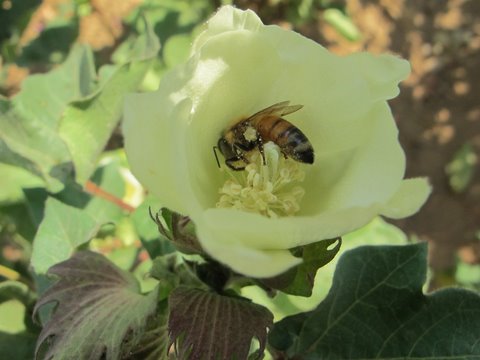China Must Act Immediately to Protect its Primate Populations from Extinction -Dr Paul Garber and Dr Alejandro Estrada
Original Article Reference
This SciPod is a summary of the paper ‘The primate extinction crisis in China: immediate challenges and a way forward’ in Biodiversity and Conservation. https://doi.org/10.1007/s10531-018-1614-y
Share Episode
About this episode
China is home to a large number of the world’s primate species, but expanding industries and land transformations have put the country’s lorises, monkeys and apes at risk of extinction. Dr Paul Garber of the University of Illinois-Urbana and Dr Alejandro Estrada of the National Autonomous University of Mexico, along with primate scientists from China, Brazil and Australia, have examined the challenges that China faces in protecting and maintaining its biodiversity. The team also offers a set of conservation solutions that could help protect China’s non-human primate populations from being lost forever.
This work is licensed under a Creative Commons Attribution 4.0 International License. 
What does this mean?
Share: You can copy and redistribute the material in any medium or format
Adapt: You can change, and build upon the material for any purpose, even commercially.
Credit: You must give appropriate credit, provide a link to the license, and indicate if changes were made.
Related episodes
Professor Keith Solomon – Dr. Gladys Stephenson | The Weight of Evidence: Brought Clarity to the Buzz About Pesticides and Pollinators
Modern environmental science faces a curious paradox. We have more data than ever, but less certainty. For scientists, policymakers, and the public alike, the sheer volume of studies, each with its own assumptions, experimental conditions, and interpretations, can be overwhelming. Which studies are trustworthy? Which deserve more weight when making decisions about environmental safety? This question has haunted environmental toxicologists who were trying to determine whether pesticides were harming pollinators such as honeybees. Some studies could show significant impacts while others may show minimal effects. Such inconsistencies can fuel the debate over insecticides like neonicotinoids and lead to public confusion. To address this, Professor Keith Solomon, an environmental toxicologist at the University of Guelph, and colleagues set out to bring structure and clarity to the field. Their goal was not to silence debate, but to create a rigorous, transparent, and quantitative framework for evaluating scientific evidence. The result was a methodology called the Quantitative Weight of Evidence, or QWoE.
Dr. Ossénatou Mamadou | Understanding turbulence in the lower atmosphere above West Africa
West Africa’s climate is constantly being shaped by interactions between the ground and the lower atmosphere, where instabilities can give rise to unpredictable turbulence. Guided by extensive weather observations, a team led by Dr. Ossénatou Mamadou at the University of Abomey-Calavi, Benin, has gained important insights into when and how these instabilities occur, and how well they can be predicted by existing theories. Their findings could help climatologists improve weather forecasts in the region and better understand how West Africa might respond to a changing climate.
Professor Chandra Waring | The Myth of the “Post-Racial” Family: What Multiracial Families Reveal About Race in America
In the United States, families that cross racial lines often attract admiration and curiosity. Such families are increasingly common, and they are seen by many as living proof that love conquers prejudice, and that the country is moving beyond its painful racial past. When a white mother cradles her brown-skinned baby, or a Black father teaches his lighter-skinned daughter to ride a bike, the image seems to embody progress and racial harmony. But as Professor Chandra Waring of the University of Massachusetts Lowell shows in her 2025 study, the story is far more complicated. Her article, titled “My Dad Is Racist as Hell: Navigating Racism, Monoracism, and White Privilege by Proxy in Multiracial Families,” reveals what really happens inside many multiracial households. Through interviews with 30 multiracial Americans, Waring reveals that love does not necessarily cancel racism. In fact, racism, and its quieter cousin, monoracism, often lives right inside these families.
Professor Dr Susanne Maria Maurer | How Social Work Functions as Living Memory of Society’s Deepest Conflicts
Research from Professor Dr Susanne Maria Maurer, former chair of social pedagogy at the Philipps-Universität Marburg, reveals how social work institutions and practices serve as repositories of knowledge about historical struggles over class, gender, and race. She conceptualizes social work as both a “memory of conflicts” and an “open archive” that holds different answers to social problems from across history. Her work shows that to truly understand social work today we need to look at the ideas that were pushed aside and the ongoing debates that still shape how social workers do their jobs.
Increase the impact of your research
• Good science communication helps people make informed decisions and motivates them to take appropriate and affirmative action.
• Good science communication encourages everyday people to be scientifically literate so that they can analyse the integrity and legitimacy of information.
• Good science communication encourages people into STEM-related fields of study and employment.
• Good public science communication fosters a community around research that includes both members of the public, policymakers and scientists.
• In a recent survey, 75% of people suggested they would prefer to listen to an interesting story than read it.

Step 1 Upload your science paper
Step 2 SciPod script written
Step 3 Voice audio recorded
Step 4 SciPod published




